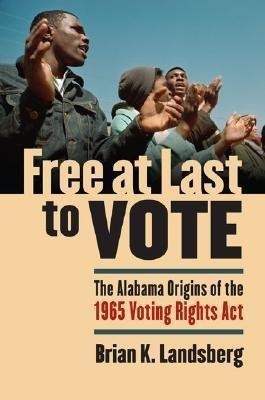Free at Last to Vote(English, Hardcover, Landsberg Brian K.)
Quick Overview
Product Price Comparison
Although the heroism of last century's freedom marches will long be credited for ending racial discrimination, civil rights legislation owes much to work done more quietly in the district courtrooms of the South. This book expands our understanding of how the Voting Rights Act came about by focusing on several key cases in Alabama that paved the way for this landmark legislation. Brian Landsberg - himself a participant in many of these trials - argues that Department of Justice litigation contributed significantly to the content of the landmark 1965 Voting Rights Act. His close analysis of these trials shows how they helped pave the way for the dramatic expansion of federal power in combating racist enforcement of voting laws. Focusing on three out of the seventy voting rights cases filed between 1957 and 1965, he reveals how the DOJ, newly armed with authority to bring civil suits against voting discrimination, aggressively pursued its efforts to enforce the Reconstruction Amendments. These cases in Elmore, Sumter, and Perry counties helped to expose the chasm between the objectives of the Fifteenth Amendment and the practices of southern voter registrars - and the equally deep chasm between practices in the Deep South and those in the rest of the country. The VRA adopted many of the stringent remedies that emerged from these trials, including the appointment of federal officials to observe elections and maintain lists of eligible voters and the need for federal approval for changes in local voting procedures. Landsberg highlights a long-neglected but vitally important chapter in the history of the civil rights movement and puts a human face on the struggle for the right to vote, enhancing our understanding of the efforts blacks made to register, the doubts of even moderate whites, and the role of federal agents in protecting voter rights. His study is especially welcome in light of the controversy surrounding the VRA's recent renewal in 2006, which caught glimpses of the pre-VRA South, and current concerns over new and emerging forms of disenfranchisement.


